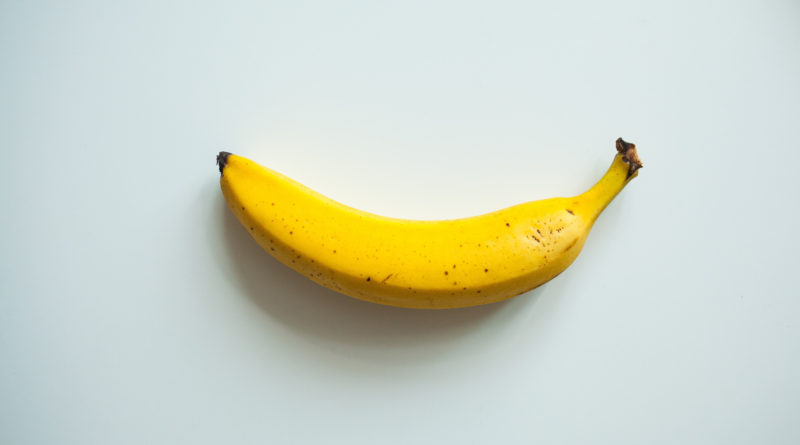Bananas: The Fruit of Endless Benefits and Versatility
Banana: Is it a super food?



Bananas are one of the most widely consumed fruits in the world, loved for their sweet taste, convenient portability, and impressive nutritional benefits. Often referred to as “nature’s candy bar,” bananas offer much more than just a quick snack. With a rich history, incredible versatility, and numerous health advantages, bananas truly deserve their spot as a dietary staple in households across the globe.
In this in-depth article, we’ll explore everything you need to know about bananas, including their history, nutritional value, health benefits, culinary uses, fun facts, and tips on selecting and storing them. Let’s dive in!
A Brief History of Bananas
Bananas are believed to have originated in Southeast Asia, where they have been cultivated for thousands of years. The fruit was later introduced to Africa, the Middle East, and eventually to the Americas by explorers and traders. Today, bananas are grown in over 135 countries and are one of the most important crops globally.
The Cavendish banana, which is the most common variety found in supermarkets, gained popularity in the mid-20th century after the decline of the Gros Michel variety due to a fungal disease. Despite challenges such as pests and diseases, bananas continue to thrive as a vital part of diets and economies around the world.
The Nutritional Power of Bananas
Bananas are a nutritional powerhouse, providing a range of essential vitamins and minerals. Here’s a closer look at what makes bananas so good for you:
- Potassium: Bananas are famously high in potassium, which helps regulate blood pressure, maintain heart health, and support muscle function.
- Vitamin C: This antioxidant boosts immunity, promotes collagen production, and protects cells from damage.
- Vitamin B6: Essential for brain development and function, B6 also helps the body produce serotonin and dopamine.
- Dietary Fiber: Bananas contain both soluble and insoluble fiber, aiding digestion and promoting gut health.
- Magnesium: Supports bone health, muscle relaxation, and energy production.
- Low in Fat and Calories: A medium-sized banana contains about 105 calories and virtually no fat, making it an ideal snack for weight management.
Health Benefits of Bananas
1. Boosts Energy Naturally
Bananas are a perfect pre- or post-workout snack, thanks to their combination of natural sugars, carbohydrates, and potassium. They provide a quick energy boost while replenishing electrolytes lost during exercise.
2. Supports Heart Health
The potassium and magnesium in bananas work together to maintain a healthy heart by regulating blood pressure and reducing the risk of cardiovascular diseases.
3. Aids Digestion
The dietary fiber in bananas helps regulate bowel movements, preventing constipation and promoting overall digestive health. Additionally, bananas contain prebiotics, which nourish the beneficial bacteria in your gut.
4. Enhances Mood and Reduces Stress
Bananas contain tryptophan, an amino acid that the body converts into serotonin, the “feel-good” hormone. This makes bananas a natural mood enhancer and stress reliever.
5. Strengthens Bones
Although bananas are not a significant source of calcium, their high potassium and magnesium content supports bone health and helps prevent osteoporosis.
6. Improves Skin Health
The vitamins and antioxidants in bananas, particularly vitamin C, can help improve skin texture, reduce inflammation, and promote a youthful glow.
Culinary Uses of Bananas
Bananas are incredibly versatile and can be used in a variety of dishes, from sweet to savory. Here are some popular ways to enjoy bananas:
Sweet Dishes
- Smoothies: Blend bananas with your favorite fruits, yogurt, and milk for a delicious and nutritious smoothie.
- Desserts: Use ripe bananas in banana bread, muffins, pancakes, or even homemade ice cream.
- Toppings: Add sliced bananas to oatmeal, cereal, or yogurt for a naturally sweet touch.
Savory Dishes
- Curries: In some cuisines, bananas and plantains are used in savory curries and stews.
- Chips: Slice unripe bananas thinly and fry them to make crispy banana chips.
Snacks
- On-the-Go: Bananas are the ultimate portable snack—just peel and enjoy!
- Frozen Treats: Dip bananas in chocolate and freeze them for a refreshing dessert.
Fun Facts About Bananas
- Bananas are classified as berries, while fruits like strawberries are not.
- There are over 1,000 varieties of bananas, but the Cavendish is the most commonly consumed.
- The average banana contains about 3 grams of fiber and 12 grams of natural sugar.
- India is the world’s largest producer of bananas, followed by China and the Philippines.
- Bananas are the most popular fruit in the world, with over 100 billion consumed annually.
Tips for Choosing and Storing Bananas
To make the most of your bananas, follow these simple tips:
Choosing Bananas
- Look for bananas with bright yellow skin and minimal bruising for immediate consumption.
- If you prefer sweeter bananas, let them ripen until they develop brown spots.
Storing Bananas
- Keep bananas at room temperature and away from direct sunlight.
- To slow down ripening, place bananas in the refrigerator. The skin may darken, but the fruit inside will remain fresh.
- If you have overripe bananas, use them in baking or freeze them for later use.
Conclusion
Bananas are truly a remarkable fruit, offering a perfect blend of taste, nutrition, and versatility. Whether you’re looking for a quick snack, an energy boost, or an ingredient for your favourite recipe, bananas have got you covered. Embrace the goodness of bananas and let this incredible fruit enrich your life, one bite at a time.





